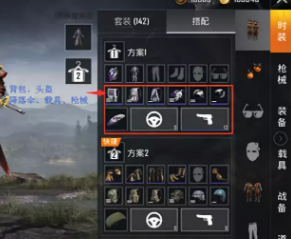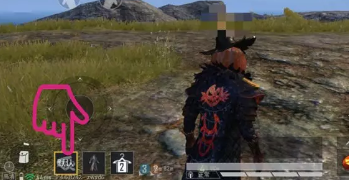cryptocurrency status, Reviews
On the 12th, South Korea's National Assembly voted to pass a special civil strife inspection law to investigate President Yin Xiyue's suspicion of civil strife. (Xinhua News Agency)The scale of CSI A500ETF South (159,352) exceeded 18.7 billion yuan, and the first batch of 85 equity index funds were included in the catalogue of personal pension investment products, covering core indexes such as CSI A500. The main index of A shares rose, and CSI A500ETF South (159,352) rose by 0.88%. Yesterday, funds exceeding 1.9 billion yuan flowed into the south of CSI A500ETF, ranking first in its kind, and its latest scale exceeded 18.7 billion yuan, ranking second in its kind. The market is rising. In the news, the personal pension system will be extended to the whole country on December 15th, and product expansion has also become the focus. Today, the CSRC has included the first batch of 85 equity index funds in the catalogue of personal pension investment products, including 78 products that track various broad-based indexes and 7 products that track dividend indexes, including ordinary index funds, index enhancement funds and ETF-linked funds such as Shanghai and Shenzhen 300 Index, CSI A500 Index and Growth Enterprise Market Index. The investment style of index funds is clear and the rate level is low, so the inclusion of related products is conducive to enriching investors' choices. Related products also implement preferential rates to actively benefit investors.EU finalizes new sanctions against Russia: strike against the "shadow fleet". According to a report on the website of the German newspaper Sü ddeutsche Zeitung on December 11th, EU countries have reached an agreement on a new package of sanctions against Russia. Several diplomats told DPA that the new sanctions were aimed at strengthening the crackdown on the so-called "Russian shadow fleet" transporting oil and petroleum products. It is reported that more than 50 ships will be banned from entering EU ports. In addition, they can no longer get the services of EU enterprises. In June this year, the EU has taken preliminary measures to blacklist more than 20 Russian ships. It is reported that this is the 15th package of sanctions against Russia drawn up by the EU so far. The plan also stipulates that trade with more than 30 other business entities should be restricted, and the EU has determined that they should keep in touch with Russian defense and security departments. In addition, the EU also plans to impose an entry ban and asset freeze on some individuals. According to the report, senior EU officials are pleased that member States have reached a consensus on this. Kaya Karas, the EU's High Representative for Foreign Affairs and Security Policy, said: "This will further weaken (Russian President) Putin's war machine." Roberta Metsola, Speaker of the European Parliament, said: "This sends another strong signal: our support for Ukraine will not weaken." The sanctions plan will be officially confirmed at the meeting of foreign ministers of member States in Brussels on the 16th, and then will be published in the official gazette of the European Union and come into effect. (Reference message)
The OpenAI webpage shows that API, ChatGPT and Sora are all running normally.There are 695 listed companies in Jiangsu Province. According to the latest statistics of Jiangsu Listed Companies Association, there were 695 listed companies in Jiangsu Province by the end of November, including 15 new companies this year. Among the 695 companies, there are 216 main boards of Shanghai Stock Exchange, 110 in science and technology innovation board, 126 main boards of Shenzhen Stock Exchange (including one pure B-share), 196 Growth Enterprise Market and 47 North Stock Exchange. By geographical distribution, the total number of listed companies in Suzhou is far ahead in the province, reaching 219, 124 in Nanjing, 123 in Wuxi and 72 in Changzhou. In terms of A-shares, as of the end of November, there were 694 A-share listed companies in Jiangsu Province with a total market value of 6,745.231 billion yuan, accounting for 12.92% and 7.80% of the corresponding total of A-share listed companies respectively.The Bank of Japan's short-term survey may show that business confidence has hardly changed. It is reported that the short-term survey released by the Bank of Japan on Friday may show that the mood of large manufacturers has remained almost unchanged in the last quarter under the influence of complex signals such as the recovery of the automobile industry and concerns about the global economic slowdown. Economists surveyed by data provider Quick predict that the prosperity judgment index of large-scale manufacturing industry will be +12, compared with +13 in the last survey. The survey is closely watched for clues about the decision of the Bank of Japan at its meeting next week. If it shows strong capital expenditure plan, high inflation expectation and tight employment situation, it may support the idea of raising interest rates early.
Liu Shijin: To expand consumption, we should manage from the source, and give priority to improving basic public services and consumption of low-and middle-income groups. Liu Shijin, deputy director of the 13th Chinese People's Political Consultative Conference Economic Commission and former deputy director of the the State Council Development Research Center, pointed out in his speech at the main forum of the 2024 Southern Finance and Economics International Forum that the macro-economy is picking up, but it is also facing the increasing pressure of insufficient total demand, especially insufficient consumer demand, and the focus of which is insufficient service consumption. We should give priority to improving basic public services and the consumption environment of low-and middle-income groups through "source governance" to promote the integrated development of urban and rural areas. On the basis of short-term stimulus policies, combined with medium-and long-term reforms, we will solve the institutional problems that restrict the expansion of consumption and help China's economy achieve high-quality development. "At present, it is necessary to distinguish the problems caused by insufficient demand from the causes of insufficient demand." Liu Shijin pointed out that from the perspective of international comparison, the lack of consumption demand in China at this stage is a structural deviation. In Liu Shijin's view, it is necessary to identify the key points or pain points in expanding consumer demand at this stage. First, service consumption based on basic public services, including education, medical and health care, affordable housing, social security, culture, sports and entertainment, financial services, transportation and communication; Second, the middle and low-income class with migrant workers as the focus; Third, people-centered, urbanization and urban-rural integration. (21 Finance)After the emergency martial law storm, South Korea's financial industry suffered successively. After the emergency martial law storm in South Korea, South Korea's financial industry suffered successively, and the stock market fluctuated obviously. This week, it began to rebound slightly. South Korean media pointed out that the uncertainty of South Korea's political situation may put its international reputation under downward pressure. South Korea's Deputy Prime Minister and Minister of Planning and Finance, Choe Sang-mu, held an "emergency macroeconomic and financial symposium" on the 10th to discuss the dynamics of the financial and foreign exchange markets and the countermeasures. According to South Korea's Chosun Ilbo reported on the 9th, after the emergency martial law storm, the total market value of South Korea's stock market evaporated by 58 trillion won within three days, and more than 400 billion US dollars of foreign exchange reserves were also threatened. As the political struggle of "impeaching the president" continues, not only finance, but also retail, alcohol, real estate, semiconductor export and other aspects of the Korean economy have also felt the chill. South Korean media believe that if financial instability and the stagnation of the real economy, the economy may fall into crisis sharply. According to the "Foreign Securities Investment Trends in November" released by the Korea Financial Supervisory Authority on the 10th, foreign investors sold 4.154 trillion won in the Korean securities market last month and sold Korean shares for four consecutive months. South Korea's "Asia Daily" said on the 10th that as South Korea re-entered the presidential impeachment time, the uncertainty intensified, and it is expected that the net selling behavior of foreign investors will continue. Although South Korea's stock market rebounded on the 10th, the uncertainty of the political situation put its international reputation under downward pressure. South Korea's Chosun Ilbo published a commentary on the 10th, saying that Fitch and Moody's, among the world's three major credit rating agencies, have successively warned that if the storm after martial law is prolonged, South Korea's national credit rating may be negatively affected. (CCTV)After the emergency martial law storm, South Korea's financial industry suffered successively. After the emergency martial law storm in South Korea, South Korea's financial industry suffered successively, and the stock market fluctuated obviously. This week, it began to rebound slightly. South Korean media pointed out that the uncertainty of South Korea's political situation may put its international reputation under downward pressure. South Korea's Deputy Prime Minister and Minister of Planning and Finance, Choe Sang-mu, held an "emergency macroeconomic and financial symposium" on the 10th to discuss the dynamics of the financial and foreign exchange markets and the countermeasures. According to South Korea's Chosun Ilbo reported on the 9th, after the emergency martial law storm, the total market value of South Korea's stock market evaporated by 58 trillion won within three days, and more than 400 billion US dollars of foreign exchange reserves were also threatened. As the political struggle of "impeaching the president" continues, not only finance, but also retail, alcohol, real estate, semiconductor export and other aspects of the Korean economy have also felt the chill. South Korean media believe that if financial instability and the stagnation of the real economy, the economy may fall into crisis sharply. According to the "Foreign Securities Investment Trends in November" released by the Korea Financial Supervisory Authority on the 10th, foreign investors sold 4.154 trillion won in the Korean securities market last month and sold Korean shares for four consecutive months. South Korea's "Asia Daily" said on the 10th that as South Korea re-entered the presidential impeachment time, the uncertainty intensified, and it is expected that the net selling behavior of foreign investors will continue. Although South Korea's stock market rebounded on the 10th, the uncertainty of the political situation put its international reputation under downward pressure. South Korea's Chosun Ilbo published a commentary on the 10th, saying that Fitch and Moody's, among the world's three major credit rating agencies, have successively warned that if the storm after martial law is prolonged, South Korea's national credit rating may be negatively affected. (CCTV)
Strategy guide 12-14
Strategy guide
Strategy guide
12-14























